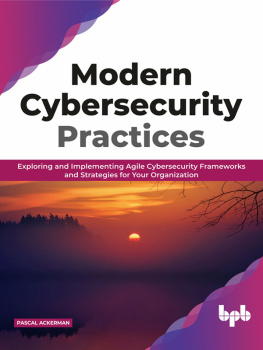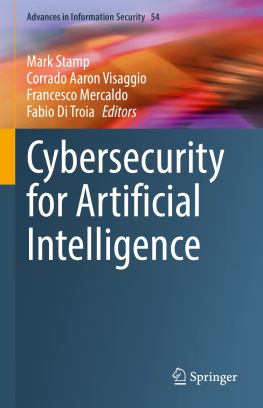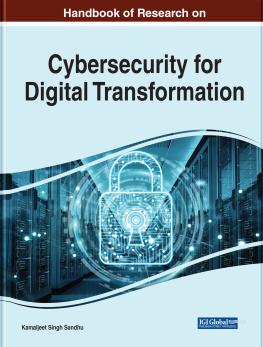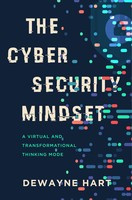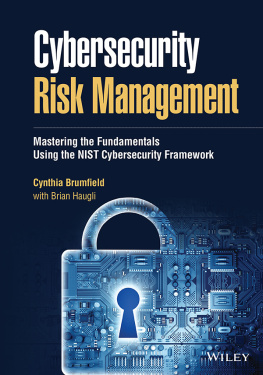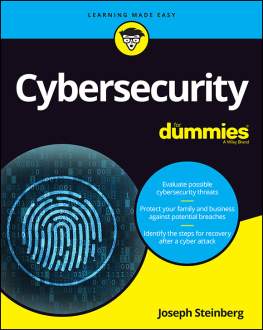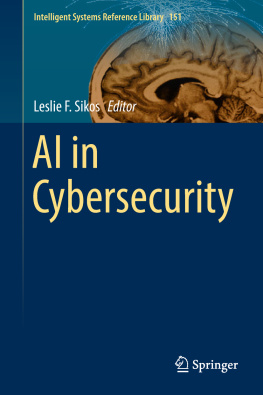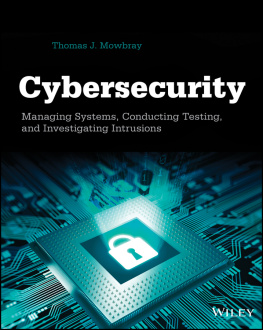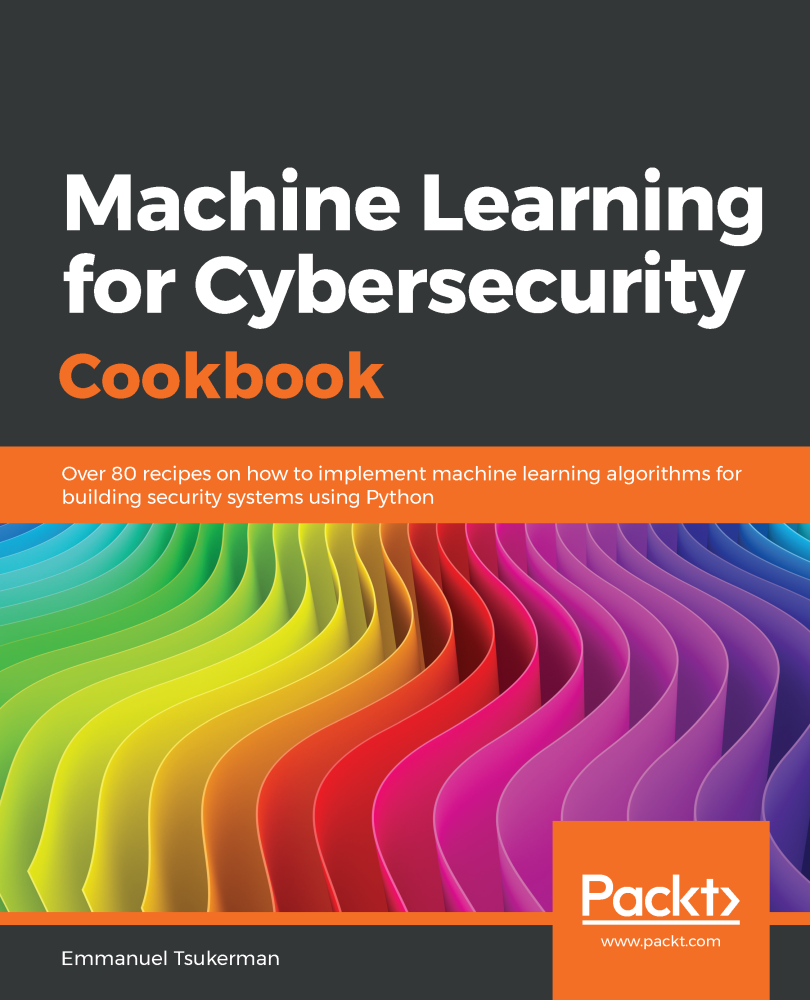
Machine Learning for Cybersecurity Cookbook
Over 80 recipes on how to implement machine learning algorithms for building security systems using Python
Emmanuel Tsukerman

BIRMINGHAM - MUMBAI
Machine Learning for Cybersecurity Cookbook
Copyright 2019 Packt Publishing
All rights reserved. No part of this book may be reproduced, stored in a retrieval system, or transmitted in any form or by any means, without the prior written permission of the publisher, except in the case of brief quotations embedded in critical articles or reviews.
Every effort has been made in the preparation of this book to ensure the accuracy of the information presented. However, the information contained in this book is sold without warranty, either express or implied. Neither the author, nor Packt Publishing or its dealers and distributors, will be held liable for any damages caused or alleged to have been caused directly or indirectly by this book.
Packt Publishing has endeavored to provide trademark information about all of the companies and products mentioned in this book by the appropriate use of capitals. However, Packt Publishing cannot guarantee the accuracy of this information.
Commissioning Editor: Sunith Shetty
Acquisition Editor: Ali Abidi
Content Development Editor: Roshan Kumar
Senior Editor: Jack Cummings
Technical Editor: Dinesh Chaudhary
Copy Editor: Safis Editing
Project Coordinator: Aishwarya Mohan
Proofreader: Safis Editing
Indexer: Tejal Daruwale Soni
Production Designer: Shraddha Falebhai
First published: November 2019
Production reference: 1221119
Published by Packt Publishing Ltd.
Livery Place
35 Livery Street
Birmingham
B3 2PB, UK.
ISBN 978-1-78961-467-1
www.packt.com
Packt.com
Subscribe to our online digital library for full access to over 7,000 books and videos, as well as industry leading tools to help you plan your personal development and advance your career. For more information, please visit our website.
Why subscribe?
Spend less time learning and more time coding with practical eBooks and Videos from over 4,000 industry professionals
Improve your learning with Skill Plans built especially for you
Get a free eBook or video every month
Fully searchable for easy access to vital information
Copy and paste, print, and bookmark content
Did you know that Packt offers eBook versions of every book published, with PDF and ePub files available? You can upgrade to the eBook version at www.packt.com and as a print book customer, you are entitled to a discount on the eBook copy. Get in touch with us at customercare@packtpub.com for more details.
At www.packt.com , you can also read a collection of free technical articles, sign up for a range of free newsletters, and receive exclusive discounts and offers on Packt books and eBooks.
Contributors
About the author
Emmanuel Tsukerman graduated from Stanford University and obtained his Ph.D. from UC Berkeley. In 2017, Dr. Tsukerman's anti-ransomware product was listed in the Top 10 ransomware products of 2018 by PC Magazine. In 2018, he designed an ML-based, instant-verdict malware detection system for Palo Alto Networks' WildFire service of over 30,000 customers. In 2019, Dr. Tsukerman launched the first cybersecurity data science course.
About the reviewers
Alexander Osipenko graduated cum laude with a degree in computational chemistry. He worked in the oil and gas industry for 4 years, working with real-time data streaming and large network data. Then, he moved to the FinTech industry and cybersecurity. He is currently a machine learning leading expert in the company, utilizing the full potential of AI for intrusion detection and insider threat detection.
Yasser Ali is a cybersecurity consultant at Thales, in the Middle East. He has extensive experience in providing consultancy and advisory services to enterprises on implementing cybersecurity best practices, critical infrastructure protection, red teaming, penetration testing, and vulnerability assessment, managing bug bounty programs, and web and mobile application security assessment. He is also an advocate speaker and participant in information security industry discussions, panels, committees, and conferences, and is a specialized trainer, featuring regularly on different media platforms around the world.
Packt is searching for authors like you
If you're interested in becoming an author for Packt, please visit authors.packtpub.com and apply today. We have worked with thousands of developers and tech professionals, just like you, to help them share their insight with the global tech community. You can make a general application, apply for a specific hot topic that we are recruiting an author for, or submit your own idea.
Preface
Cyber threats today are one of the key problems every organization faces. This book uses various Python libraries, such as TensorFlow, Keras, scikit-learn, and others, to uncover common and not-so-common challenges faced by cybersecurity researchers.
The book will help readers to implement intelligent solutions to existing cybersecurity challenges and build cutting edge implementations that cater to increasingly complex organizational needs. By the end of this book, you will be able to build and use machine learning ( ML ) algorithms to curb cybersecurity threats using a recipe-based approach.
Who this book is for
This book is for cybersecurity professionals and security researchers who want to take their skills to the next level by implementing machine learning algorithms and techniques to upskill computer security. This recipe-based book will also appeal to data scientists and machine learning developers who are now looking to bring in smart techniques into the cybersecurity domain. Having a working knowledge of Python and being familiar with the basics of cybersecurity fundamentals will be required.
What this book covers
, Machine Learning for Cybersecurity, covers the fundamental techniques of machine learning for cybersecurity.
, Machine Learning-Based Malware Detection, shows how to perform static and dynamic analysis on samples. You will also learn how to tackle important machine learning challenges that occur in the domain of cybersecurity, such as class imbalance and false positive rate (FPR) constraints.
, Advanced Malware Detection, covers more advanced concepts for malware analysis. We will also discuss how to approach obfuscated and packed malware, how to scale up the collection of N-gram features, and how to use deep learning to detect and even create malware.
,
Next page

